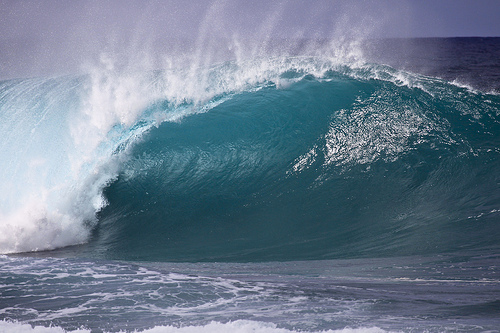There’s a session at the NonfictioNow conference that couldn’t be more appropriate for this blog: ‘Longform Nonfiction and Online Distribution’. Four emerging practitioners of the non-fiction form will, ‘explore the role that reading and writing online have [in influencing their] work, while engaging in a form of cultural activism, in which writers are found fighting for more space for longer works of nonfiction,’ (from the precis). As the words ‘activism’ and ‘fighting’ imply, there is a certain chutzpah involved in pursuing long form these days. Aggregate sites like longform.org and longreads.com as well as initiatives such as Kindle Singles, The Atavist and Byliner have provided new US-based venues for writers. The presence of these and other digital-first publishing initiatives (like Editia in Australia) have given me cause for celebration. But, as writer Elmo Keep reminds me, things aren't ideal in the Australian context.
‘In terms of traditional mastheads where there’s a focus on extremely high-quality long form investigative-based journalism, we don’t really have many places to choose from in Australia. We’ve got a really rich and very alive literary journal tradition here. But that’s different to magazines. There are very few options to Australian non-fiction writers who want to write long, get published and get paid,’ Keep says.
Writers like Keep have successfully pursued overseas markets to publish their long form work. But pitching to overseas publications – such as those in the US – can be restrictive for Australians. ‘Unless it’s an exceptional Australian story that resonates universally [those stories getting published are] probably going to be something that appeals to American audiences,’ says Keep.
The US market is particularly strong (compared to Australia which can boast just a handful of print publications that publish long form work). ‘We do have places where our stories go but they’re niche places. We have nothing like a national magazine with the reach of The New Yorker for example,’ Keep says.
Keep values the opportunities overseas publications can give to Australian writers, but she is concerned about a trickle-down effect. There could be ‘a poverty of people writing Australian stories.’ The session at NonfictioNOW will consider the climate for publishing long form non-fiction in Australia. ‘We’ll be talking about that, about why our magazine culture is what it is or isn’t, and about how you can get your work out,’ says Keep.
These days, finding a publisher is just one challenge to establishing a career for new and emerging writers of long form non-fiction (this Venues and Resources page can be helpful). Another is in facing the call to ‘build’ an online ‘brand’ or ‘platform’ from which to promote our work (and/or determine how necessary this really is). To my mind, Keep has built her writerly brand relatively well. She has a strong online presence and over 3,000 Twitter followers.
Keep says acquiring this presence was organic. She’s a self-described nerd who has been online since 1995 (when the Internet was mostly about community). She was there, ‘before brands invaded the space. Before the idea of a personal brand was even a thing that someone would say.’
‘I just wanted to be someone on Twitter who you would want to follow because that person was always sharing things that were interesting or funny or hilarious... Just being like a miniature magazine,’ she says.
Having an online presence never hurts says Keep. ‘It can lead to great opportunities and it can lead to meeting great people.’ It’s useful for research, interviewing and being part of a community. But she warns that, ‘there can be a little bit of snake oil that goes around. The only thing that’s ever going to be good is [good writing. The writer’s ‘brand’] is always going to be auxiliary to everything else that goes into publicising a book. It’s not a replacement for being interviewed on Radio National or getting reviewed in The Australian,’ she says.
Using these platforms successfully is, ‘about catching a really wild tide on the Internet – which you can’t create. If you’re pouring all your time into that and not pouring that time into doing meaningful work then it’s completely self defeating.’
Elmo Keep will be presenting in the session Longform Nonfiction and Online Distribution with John Proctor, Ronnie Scott, Sam Twyford-Moore and Steve Grimwade on Friday 23 November at 3.00pm.
Visit the NonfictioNow website for more detail.


